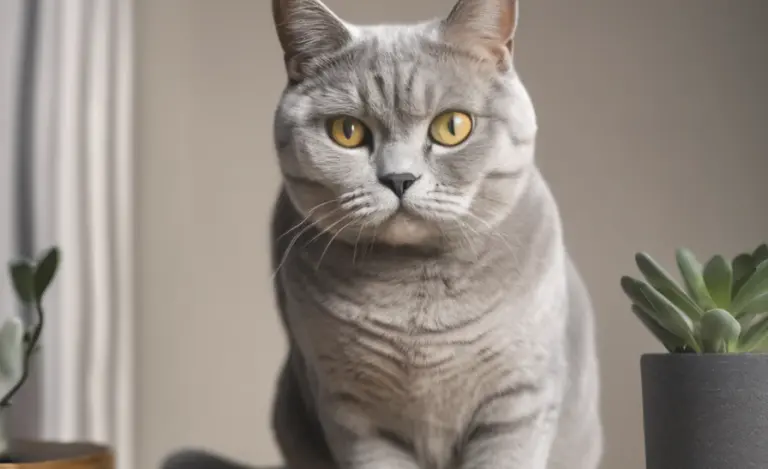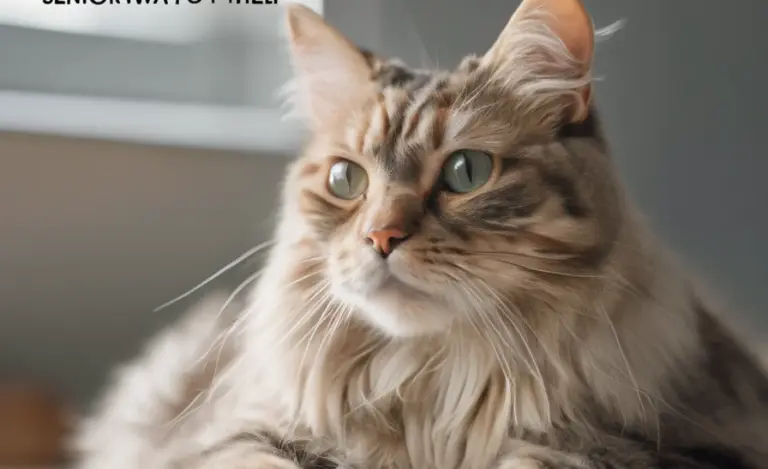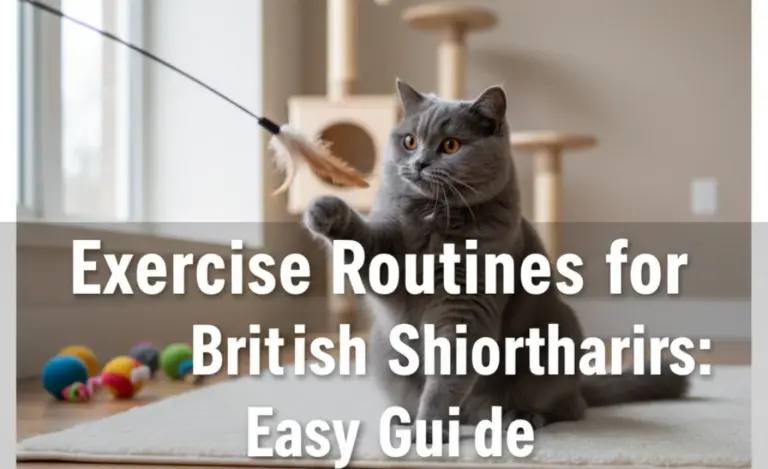British Shorthair Cat Mental Wellbeing: Secret Tips
British Shorthair mental wellbeing hinges on a secure, stimulating environment. Provide interactive toys, scratching posts, and regular playtime to combat boredom. Ensure a predictable routine with consistent feeding and cleaning. Observe your cat’s behavior for signs of stress, such as hiding or excessive grooming, and consult your vet if needed. A happy British Shorthair is a healthy one!
Is your British Shorthair looking a little glum? These wonderful cats, known for their calm and affectionate nature, still need plenty of mental stimulation to thrive. Without it, they can become bored, stressed, or even develop unwanted behaviors.
Don’t worry! Keeping your British Shorthair happy and mentally healthy is easier than you think. I’ll walk you through simple, step-by-step ways to enrich their lives, from playtime ideas to creating a soothing home environment. Let’s unlock the secrets to a purr-fectly content kitty!
Understanding British Shorthair Mental Wellbeing
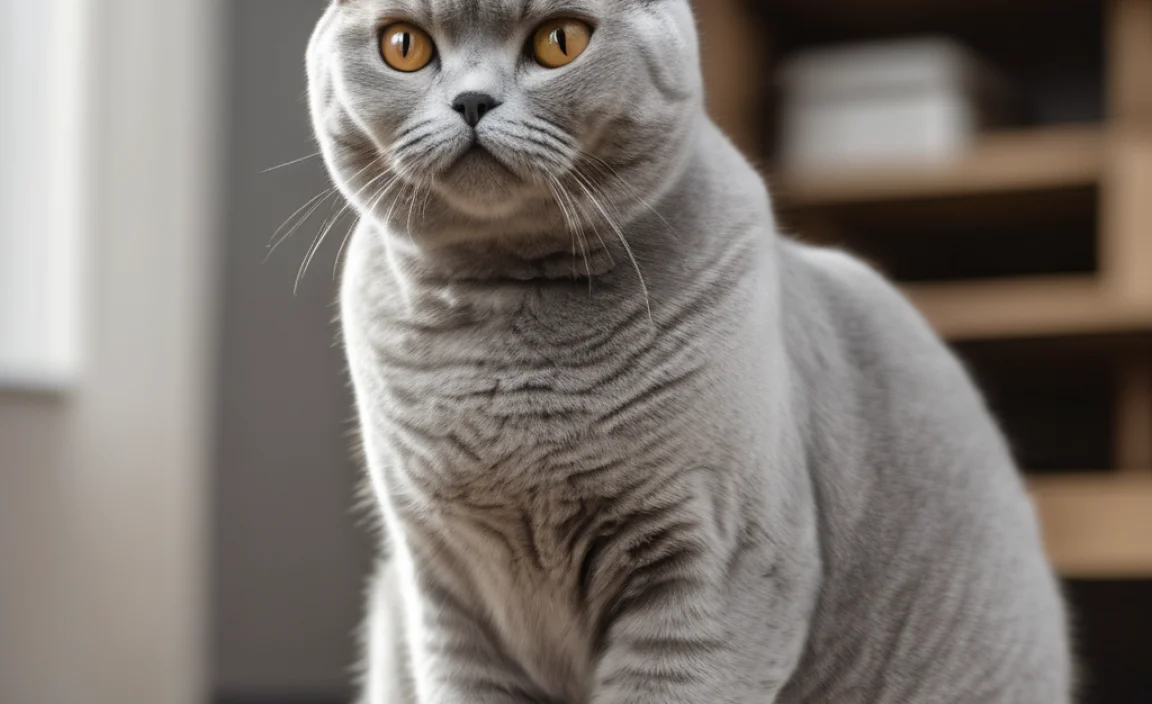
British Shorthairs are known for their easygoing nature, but like all cats, they have emotional and mental needs that must be met. Understanding these needs is the first step in ensuring their wellbeing. These cats are intelligent and curious, requiring mental stimulation to prevent boredom and frustration. A lack of mental stimulation can lead to behavioral issues and a decline in overall happiness.
Pay close attention to your British Shorthair’s behavior. Changes in appetite, sleeping patterns, or social interaction can be indicators of underlying mental or emotional distress. Early detection and intervention are crucial in maintaining their quality of life.
Creating a Stimulating Environment
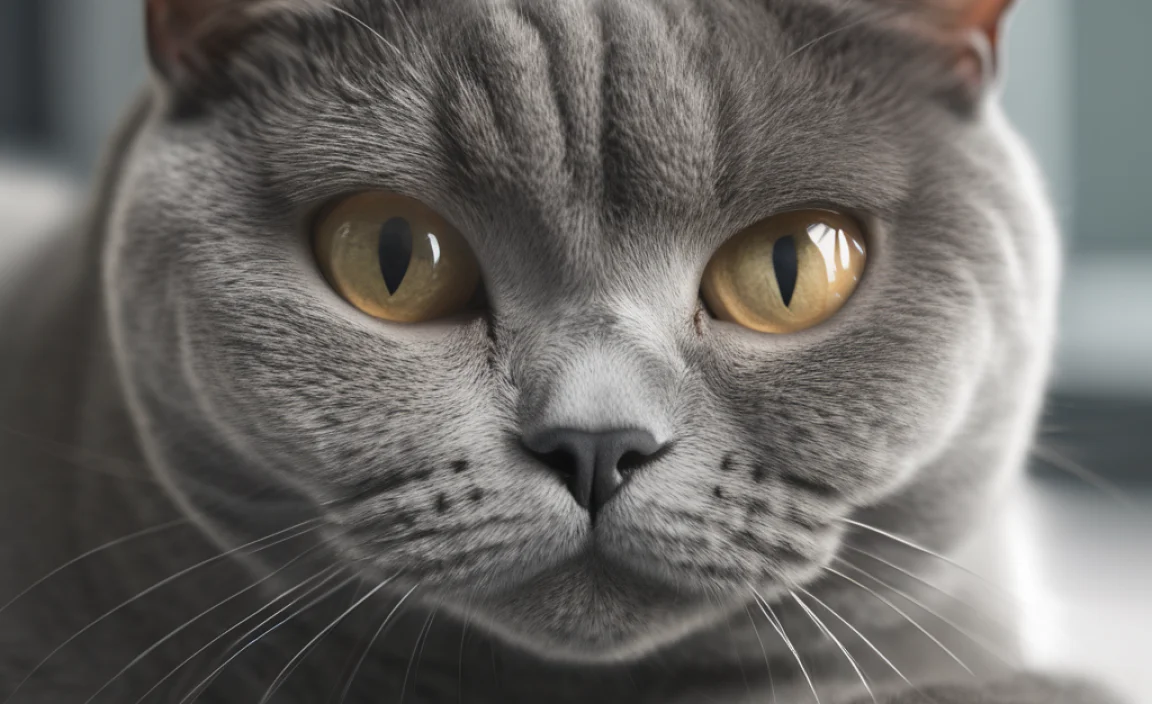
A stimulating environment is vital for a British Shorthair’s mental wellbeing. This includes providing opportunities for play, exploration, and interaction. Here’s how you can create a stimulating environment:
- Interactive Toys: Toys that mimic hunting behavior, such as feather wands and laser pointers, can provide hours of entertainment. Rotate toys regularly to keep your cat interested.
- Scratching Posts: Scratching is a natural behavior that helps cats relieve stress and maintain their claws. Provide a variety of scratching surfaces, including vertical posts and horizontal pads.
- Climbing Structures: Cats love to climb and observe their surroundings from a high vantage point. Cat trees and shelves can satisfy this instinct and provide a sense of security.
- Puzzle Feeders: These toys dispense food as your cat plays with them, providing mental stimulation and slowing down eating.
- Window Perches: A window perch allows your cat to watch birds, squirrels, and other outdoor activities, providing visual stimulation.
Consider your cat’s personality when selecting toys and activities. Some British Shorthairs may prefer gentle play, while others may enjoy more vigorous exercise.
The Importance of Playtime
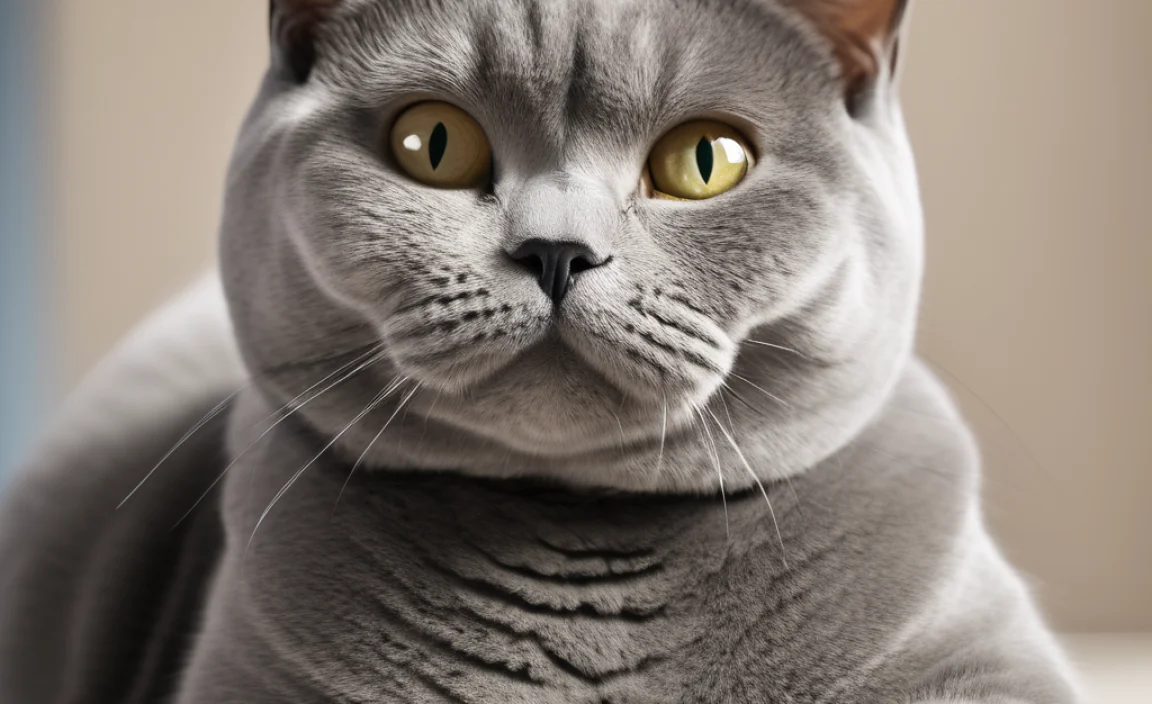
Playtime is essential for a British Shorthair’s mental and physical health. Regular play sessions help to burn energy, reduce stress, and strengthen the bond between you and your cat. Aim for at least 15-20 minutes of interactive play each day.
Here are some playtime ideas:
- Feather Wand Teaser: Mimic the movement of prey to entice your cat to chase, pounce, and capture.
- Laser Pointer: Shine the laser pointer on the floor or walls and let your cat chase the light. Be sure to end the session by pointing the laser at a physical toy so your cat can “catch” something.
- Toy Mice: Toss toy mice for your cat to chase and bat around.
- Paper Bags or Cardboard Boxes: Cats love to explore and hide in enclosed spaces. Provide paper bags or cardboard boxes for your cat to investigate. Remove any handles or staples to prevent injury.
- Chasing Bubbles: Some cats enjoy chasing and popping bubbles. Use a pet-safe bubble solution to avoid any harmful chemicals.
Creating a Safe and Secure Environment
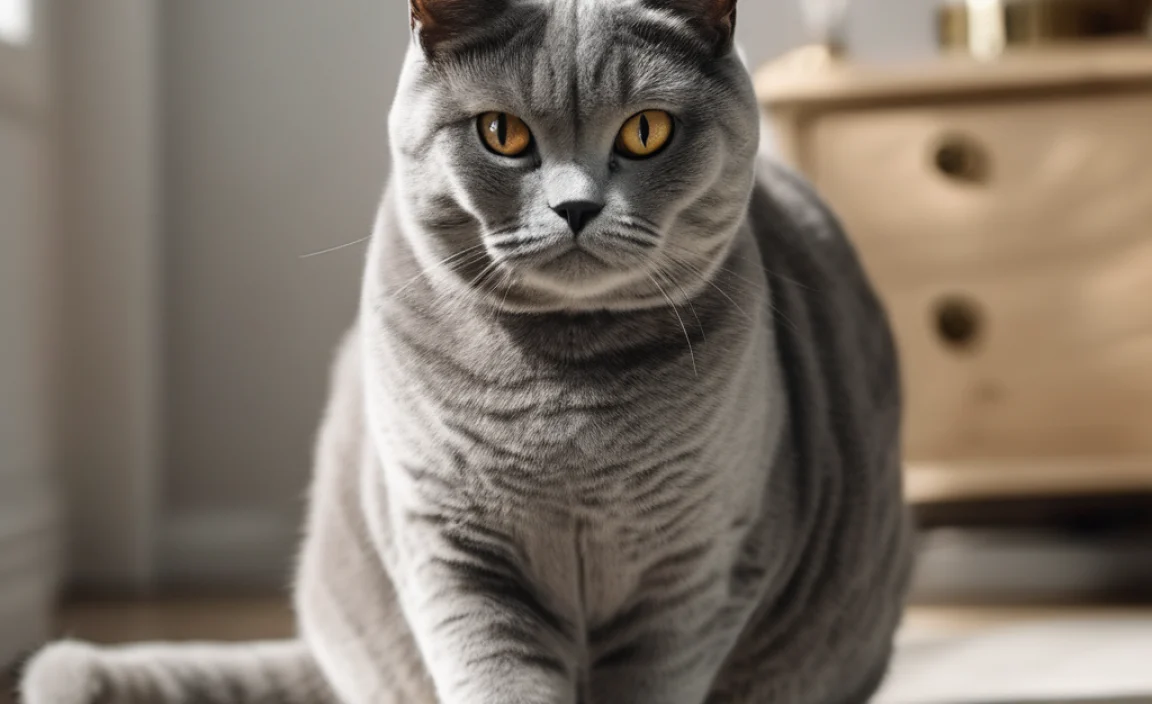
A safe and secure environment is crucial for a British Shorthair’s mental wellbeing. Cats are creatures of habit and thrive on routine and predictability. Changes in their environment or routine can cause stress and anxiety.
Here are some ways to create a safe and secure environment:
- Consistent Routine: Feed your cat at the same time each day and maintain a regular cleaning schedule for their litter box.
- Safe Hiding Places: Provide multiple hiding places where your cat can retreat when feeling stressed or overwhelmed. These can include cardboard boxes, cat caves, or even under the bed.
- Quiet Spaces: Ensure your cat has access to quiet spaces where they can relax and escape from noise and activity.
- Avoid Punishment: Never punish your cat for unwanted behaviors. Punishment can create fear and anxiety, which can worsen the problem. Instead, focus on positive reinforcement and redirecting unwanted behaviors.
- Minimize Stressful Situations: Try to minimize stressful situations, such as loud noises, unfamiliar visitors, or changes in the home environment. If these situations are unavoidable, provide your cat with a safe and secure space to retreat to.
Recognizing Signs of Stress and Anxiety
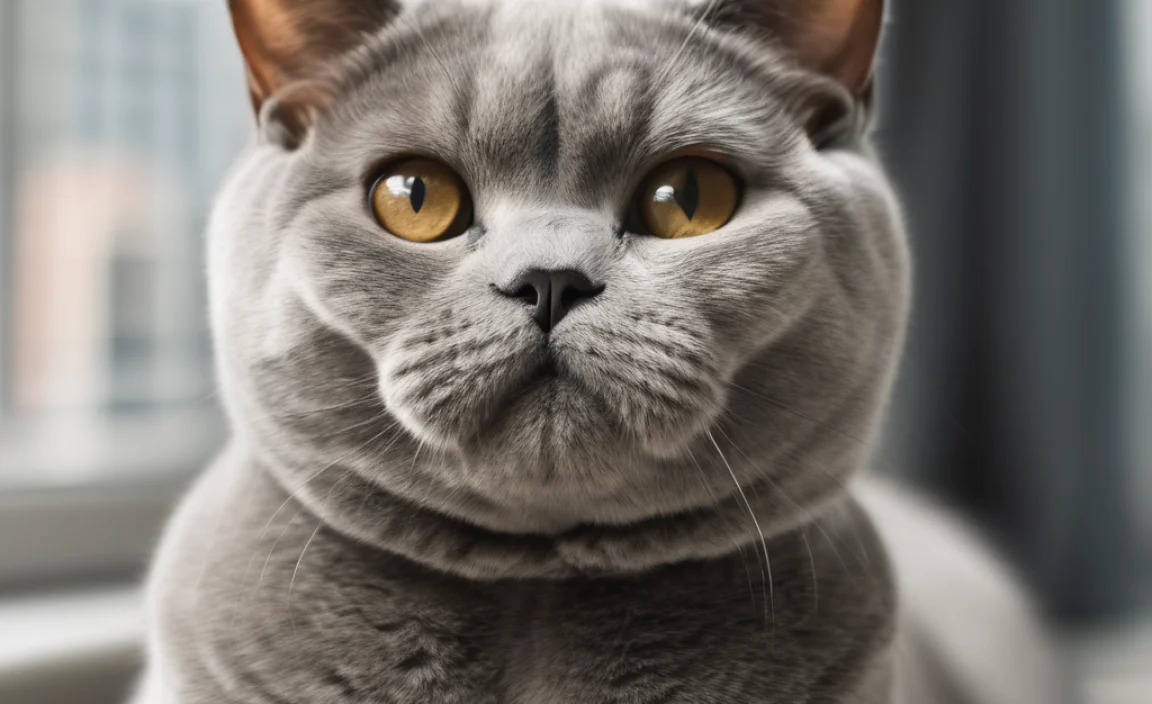
Recognizing the signs of stress and anxiety in your British Shorthair is essential for addressing their mental wellbeing. Cats often exhibit subtle signs of distress that can be easily overlooked.
Here are some common signs of stress and anxiety in cats:
- Hiding: A stressed cat may hide more frequently or for longer periods.
- Changes in Appetite: Stress can cause a cat to lose their appetite or overeat.
- Excessive Grooming: A stressed cat may groom themselves excessively, leading to bald patches or skin irritation.
- Changes in Litter Box Habits: Stress can cause a cat to urinate or defecate outside the litter box.
- Aggression: A stressed cat may become more aggressive towards people or other animals.
- Vocalization: Increased meowing, hissing, or growling can be signs of stress.
- Restlessness: A stressed cat may be unable to settle down or relax.
If you notice any of these signs, it’s essential to identify the underlying cause of the stress and take steps to address it. Consult with your veterinarian to rule out any medical conditions that may be contributing to the problem.
The Role of Nutrition in Mental Wellbeing
Proper nutrition plays a vital role in a British Shorthair’s mental wellbeing. A balanced diet provides the essential nutrients needed for optimal brain function and emotional stability. Deficiencies in certain nutrients can lead to behavioral problems and mood changes.
Here are some nutritional considerations for promoting mental wellbeing:
- High-Quality Protein: Protein is essential for brain function and the production of neurotransmitters, which regulate mood and behavior. Choose a cat food that contains a high-quality protein source, such as chicken, fish, or turkey.
- Omega-3 Fatty Acids: Omega-3 fatty acids, such as EPA and DHA, have been shown to improve brain function and reduce anxiety in cats. Look for cat foods that contain fish oil or flaxseed oil.
- Antioxidants: Antioxidants, such as vitamin E and vitamin C, protect brain cells from damage caused by free radicals. Choose a cat food that is rich in antioxidants.
- Avoid Artificial Additives: Artificial colors, flavors, and preservatives can negatively impact a cat’s behavior and mood. Choose a cat food that is free from artificial additives.
Always consult with your veterinarian to determine the best diet for your British Shorthair’s individual needs. Your vet can recommend a specific cat food or supplements to support their mental wellbeing.
The Importance of Social Interaction
British Shorthairs are known for their affectionate and social nature. While they may not be as demanding as some other breeds, they still need regular interaction with their human companions. Social interaction provides mental stimulation and strengthens the bond between you and your cat.
Here are some ways to provide social interaction for your British Shorthair:
- Petting and Grooming: Spend time petting and grooming your cat each day. This provides physical contact and helps to reduce stress.
- Talking to Your Cat: Talk to your cat in a calm and soothing voice. Cats can recognize their owner’s voice and find it comforting.
- Playing Together: Engage in interactive play sessions with your cat. This provides mental stimulation and strengthens your bond.
- Sharing Space: Allow your cat to spend time in the same room as you. Cats enjoy being near their human companions, even if they are not actively interacting.
- Introducing New People and Pets Gradually: If you are introducing a new person or pet into the home, do so gradually. Allow your cat to adjust to the new presence at their own pace.
Some British Shorthairs may enjoy the company of other cats or dogs, while others may prefer to be the only pet in the household. Observe your cat’s behavior and adjust their social interactions accordingly.
Environmental Enrichment for Indoor Cats
British Shorthairs are often kept as indoor cats, which can limit their opportunities for mental stimulation and physical exercise. Environmental enrichment is essential for keeping indoor cats happy and healthy.
Here are some environmental enrichment ideas for indoor cats:
- Cat Trees and Shelves: Provide vertical space for your cat to climb and explore. Cat trees and shelves allow cats to observe their surroundings from a high vantage point, which can provide a sense of security.
- Window Perches: Allow your cat to watch birds, squirrels, and other outdoor activities from a window perch.
- Indoor Plants: Add cat-friendly plants to your home. Cats enjoy exploring and interacting with plants, but be sure to choose plants that are not toxic to cats. The ASPCA has a comprehensive list of toxic and non-toxic plants.
- Hiding Places: Provide multiple hiding places where your cat can retreat when feeling stressed or overwhelmed.
- Scratching Posts: Provide a variety of scratching surfaces, including vertical posts and horizontal pads.
- Puzzle Feeders: Use puzzle feeders to dispense food as your cat plays with them. This provides mental stimulation and slows down eating.
Using Calming Aids and Supplements
In some cases, calming aids and supplements may be helpful in managing stress and anxiety in British Shorthairs. These products can help to reduce anxiety, promote relaxation, and improve overall mental wellbeing.
Here are some calming aids and supplements that may be beneficial:
- Feliway Diffusers: Feliway is a synthetic pheromone that mimics the natural pheromones produced by cats. It can help to reduce anxiety and promote a sense of security.
- Zylkene: Zylkene is a natural supplement derived from milk protein. It has been shown to have calming effects in cats and dogs.
- L-Theanine: L-Theanine is an amino acid found in green tea. It has been shown to reduce anxiety and promote relaxation in cats.
- CBD Oil: CBD oil is a natural supplement derived from the hemp plant. It has been shown to have calming effects in animals, but more research is needed to determine its effectiveness and safety in cats. Always consult with your veterinarian before using CBD oil for your cat.
Always consult with your veterinarian before using any calming aids or supplements for your British Shorthair. Your vet can recommend the best products and dosages for your cat’s individual needs.
When to Seek Professional Help
If you have tried various strategies to improve your British Shorthair’s mental wellbeing and are still seeing signs of stress or anxiety, it may be time to seek professional help. A veterinarian or a certified cat behaviorist can help you identify the underlying cause of the problem and develop a tailored treatment plan.
Here are some situations in which you should seek professional help:
- Sudden Changes in Behavior: If your cat suddenly starts exhibiting signs of stress or anxiety, it’s essential to rule out any medical conditions that may be contributing to the problem.
- Aggression: If your cat is becoming aggressive towards people or other animals, it’s important to seek professional help to address the underlying cause of the aggression.
- Self-Harm: If your cat is engaging in self-harming behaviors, such as excessive grooming or biting, it’s essential to seek professional help immediately.
- Inability to Identify the Cause of Stress: If you are unable to identify the underlying cause of your cat’s stress or anxiety, a veterinarian or cat behaviorist can help you investigate the problem.
A veterinarian can perform a physical examination and run diagnostic tests to rule out any medical conditions. A cat behaviorist can assess your cat’s behavior and environment to identify potential stressors and develop a treatment plan.
British Shorthair Mental Wellbeing: A Quick Guide
Here’s a quick reference table summarizing key aspects of British Shorthair mental wellbeing:
| Area | Recommendations |
|---|---|
| Environment | Provide interactive toys, scratching posts, climbing structures, window perches, and hiding places. |
| Playtime | Engage in at least 15-20 minutes of interactive play each day. |
| Nutrition | Feed a high-quality cat food that is rich in protein, omega-3 fatty acids, and antioxidants. |
| Social Interaction | Spend time petting, grooming, and talking to your cat each day. |
| Stress Management | Minimize stressful situations and provide a safe and secure environment. |
| Calming Aids | Consider using Feliway diffusers, Zylkene, or L-Theanine, as recommended by your veterinarian. |
| Professional Help | Seek professional help if you are unable to identify the cause of your cat’s stress or anxiety. |
Frequently Asked Questions
1. How can I tell if my British Shorthair is bored?
Signs of boredom in British Shorthairs include excessive sleeping, overeating, destructive behavior (like scratching furniture), and decreased interest in playing. Providing more interactive toys and playtime can help.
2. What are the best toys for a British Shorthair’s mental stimulation?
Great options include puzzle feeders, which make them work for their food; feather wands, which mimic hunting; and catnip toys, which stimulate their senses. Rotate toys to keep them interested.
3. How much playtime does my British Shorthair need each day?
Aim for at least 15-20 minutes of interactive play daily. Break it into shorter sessions if needed. Consistency is key to keeping them happy and engaged.
4. Is it okay to keep my British Shorthair as an indoor cat?
Yes, but indoor cats need extra environmental enrichment. Provide cat trees, window perches, scratching posts, and plenty of toys to keep them mentally stimulated.
5. Can changes in my home affect my British Shorthair’s mental wellbeing?
Yes, cats are sensitive to changes. Moving furniture, new pets, or even changes in your schedule can cause stress. Introduce changes gradually and provide extra reassurance during these times.
6. What are some natural ways to calm an anxious British Shorthair?
Creating a safe, predictable environment is key. Feliway diffusers, calming music, and providing a quiet hiding spot can also help reduce anxiety.
7. When should I consult a vet about my cat’s mental wellbeing?
If you notice sudden changes in behavior, such as aggression, loss of appetite, or excessive grooming, consult your vet. These could be signs of underlying medical or psychological issues.
Conclusion
Maintaining your British Shorthair cat’s mental wellbeing is a crucial part of responsible pet ownership. By providing a stimulating environment, engaging in regular playtime, ensuring proper nutrition, and recognizing signs of stress, you can help your feline friend live a happy and fulfilling life. Remember, a content British Shorthair is a joy to have around, bringing their calm, affectionate presence into your home for many years to come. Pay attention to their needs, adapt your approach as they age, and enjoy the rewarding bond you share.

